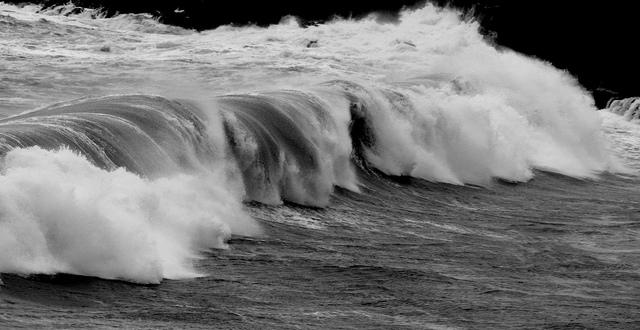Some years back, David Rapoport penned one of the more important assessments of modern terrorism, arguing that since about 1880 terrorism has appeared as four distinct ‘waves’ (PDF). Each wave has been dominated by a particular form of terrorism: anarchist, anticolonialist, New-Left, or religious. Rapoport observed that each wave tended to last about forty years—suggesting that parents in a terrorist cause typically fail to pass their beliefs on to their children. Because he believed the religious terrorist wave began in 1979, he thought that a fifth wave might begin in 2025. Speculation has already begun about what fifth wave terrorism might look like and, indeed, if Rapoport’s schedule is accurate, precursors of that fifth wave might already be visible. Broadly speaking, there are two schools of thought which we might summarise briefly as the ‘disconnected millenarian’ school, and the ‘connected loners’ school.
Eight years ago Jeffrey Kaplan argued that the fifth wave might be dominated by a new tribalism, with the Lord’s Resistance Army in Uganda as the exemplar. Kaplan identified a number of characteristics of such groups, including a breaking away from the established terrorist wave, physical withdrawal into the wilderness, an attempt to establish a new calendar, a radical quest for purity, rape as a signature tactic, and a focus on localistic and particularistic concerns. Anthony Celso subsequently made a case for inclusion within Kaplan’s fifth wave of extremist and millenarian jihadist groups, such as Boko Haram and Islamic State.
More recently, Jeffrey Simon has argued that the fifth wave mightn’t show any particular form of domination by specific groups, but might be characterised by technological interconnectedness, and the enabling of lone operators. Simon believes that the internet is the ‘energy’ for the fifth wave, much like dynamite was a precondition for the anarchist wave. Jerrold Post has made a similar case, suggesting that the fifth wave might consist of lone wolf terrorists, radicalised through the internet, who feel they belong to ‘the virtual community of hatred’.
But it’s probably worth exploring another possibility: that the fourth wave won’t end in 2025. What could be the principal reason for that? Well, religious terrorism, like its anticolonialist predecessor, draws from a strong social base—much stronger than the social bases supporting anarchism and the New Left. Some religious communities are renowned for their longevity. That suggests that parents might well be able to transfer their belief structures to another generation.
Moreover, the religious terrorist wave, while it’s been strong in building public awareness and conducting strikes, has generally under-achieved on the political front. Anticolonialist terrorism weakened as independence was granted, even though that process unfolded largely because of a belief in self-determination rather than because of terrorism. But what will dilute religious terrorism? Politically, the most vigorous religious terrorists can’t be satisfied while the Middle East retains much of its current shape. And continuing turmoil across large swathes of the Islamic world would seem to be a powerful generator of radical dissent regardless of whether parents socialise their children or not.
Besides, it’s not just events that are pulling in favour of a new generation of religious terrorists, but recruitment policies as well. Islamic State is known to be creating child militants, called ‘lion cubs’. What’s more, it’s made significant efforts to appeal to young people via Hollywood-style propaganda, approaching them on social media. ASPI’s Gen Y jihadists report found that the older generation of Australian extremists in the 1990s and 2000s—for example Abdul Nacer Benbrika, Khaled Sharrouf, and the Raad family—are believed to have drawn in a new generation of Islamist extremists. Benbrika, for example, has reportedly coached numerous individuals who went on to become foreign fighters.
Developments in communication have undoubtedly played a part in allowing religious terrorists to reach out to an unprecedented number of people. Such developments allow extremist groups to access potential recruits all around the world, and ensure a steady supply of fighters that can be replaced as quickly as they are being killed. In essence, communication technologies seem to be strengthening rather than weakening the religious wave.
Australia’s currently involved in the campaign to defeat Islamic State. But according to Rapoport, waves tend to outlive organisations. Even if Islamic State is defeated, the wave of religious extremism can still continue provided that current religious terrorist groups continue to inspire the birth of new groups.
That suggests that the religious wave might well turn out to be an abnormally long wave. That might not make it Peter Leahy’s hundred year war. But perhaps the hunt for the fifth wave has jumped the gun.
